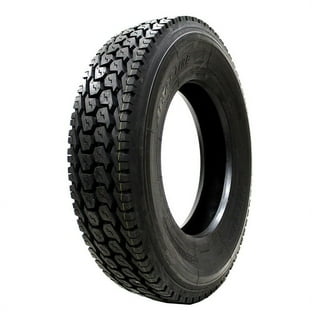Depend On Morris Tire and Alignment for Professional Service and Care
Depend On Morris Tire and Alignment for Professional Service and Care
Blog Article
Tire Solution: Recognizing Tire Stress Tracking Equipments
Comprehending Tire Pressure Tracking Equipments (TPMS) is a crucial facet of maintaining ideal vehicle efficiency and security when driving. With improvements in automotive modern technology, TPMS has actually become a typical attribute in modern lorries, supplying real-time info on tire stress degrees. Delving deeper right into the intricacies of TPMS, one can discover the numerous components that make up this system and the value of each in guaranteeing precise surveillance. From straight to indirect TPMS systems, the landscape of tire stress tracking varies, each with its special collection of factors to consider and advantages. Remain tuned to unwind the intricacies of TPMS, from maintenance pointers to the undeniable advantages of keeping your tires effectively pumped up. morris tire and alignment.

Value of TPMS
The value of Tire Stress Tracking Solutions (TPMS) depends on their capacity to improve lorry safety and performance with real-time surveillance of tire stress levels. Maintaining the right tire stress is crucial for guaranteeing ideal handling, braking, and overall safety of a vehicle. TPMS provides drivers with immediate feedback on any type of underinflated or overinflated tires, permitting timely changes to be made.
Parts of TPMS
Sensing units are typically situated in the tire shutoff stem or connected to the wheel assembly, where they determine tire pressure and send information to the control module. Some advanced TPMS models also display the real tire stress readings for each tire, supplying vehicle drivers with real-time info to make sure ideal tire efficiency and safety and security. By checking tire stress constantly, TPMS helps protect against mishaps, reduces tire wear, and improves fuel effectiveness, making it a vital component for automobile security and efficiency. tires morris il.
Sorts Of TPMS

On the various other hand, indirect TPMS depends on the car's wheel rate sensing units to check tire pressure. This system identifies underinflation by comparing the rotational rates of the wheels. Indirect TPMS is much less expensive than straight TPMS, as it utilizes existing sensors within the car.
While straight TPMS provides extra precise readings, indirect TPMS is simpler in design and typically requires much less maintenance. Both systems have their advantages and constraints, and the selection between them frequently depends on factors such as cost, car make, and personal preference. Comprehending the differences between these two kinds of TPMS can help vehicle proprietors make educated choices pertaining to tire upkeep and safety.
TPMS Maintenance Tips
Conduct routine checks on the tire stress degrees and contrast them with the TPMS readings to ensure they are constant. During tire turning or substitute, make certain that the TPMS parts are handled thoroughly to stop any kind of possible damages. If the TPMS advising light illuminates on the dashboard, address the issue quickly by inspecting the tire stress and the general system for any kind of mistakes.
Benefits of Proper Tire Pressure
Preserving appropriate tire pressure, as emphasized in TPMS Maintenance Tips, is important for gaining the countless advantages connected with optimum tire stress degrees. Among the key benefits of preserving the right tire stress is improved fuel effectiveness. When tires are appropriately blown up, there is less moving resistance, leading to far better gas economy. Additionally, proper tire pressure ensures also tire wear, expanding the life-span of the tires and promoting much safer driving conditions. With the appropriate tire stress, lorries also have far better handling and grip, especially in damaging climate conditions. pop over to these guys This can boost general driving performance and safety and security for the vehicle driver and travelers. Maintaining ideal tire pressure can add to a smoother and more comfy trip by reducing resonances and noise created by underinflated tires. In final thought, the benefits of correct tire stress exceed simply tire long life; they incorporate enhanced fuel performance, improved safety, far better automobile efficiency, and general driving you could try these out comfort.
Verdict
To conclude, understanding tire pressure surveillance systems (TPMS) is crucial for preserving optimal tire stress and guaranteeing car safety. By acknowledging the importance of TPMS, being familiar with its elements, knowing the various kinds offered, sticking to proper maintenance suggestions, and realizing the benefits of preserving appropriate tire pressure, motorists can boost their driving experience and prolong the life expectancy of their tires. Appropriate tire stress is crucial to safe and effective vehicle operation.

Report this page